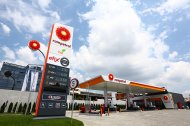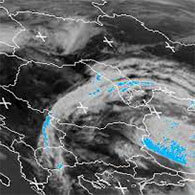The UK upgraded to A2 due to the strength of its recovery
The UK upgraded to A2 due to the strength of its recovery
15 Jul, 2014 12:38
ZIUA de Constanta
 1663
Marime text
1663
Marime text
 1663
Marime text
1663
Marime text

 Affected in 2009 by a recession more intense than other European countries under the effect of a sharp drop in household consumption and investment, the British economy is currently distinguished by the strength of renewed growth (1.8% in 2013). Forecast at +2.7% in 2014 by Coface, it could be as dynamic as that of the United States and exceed Germany (2%).
Affected in 2009 by a recession more intense than other European countries under the effect of a sharp drop in household consumption and investment, the British economy is currently distinguished by the strength of renewed growth (1.8% in 2013). Forecast at +2.7% in 2014 by Coface, it could be as dynamic as that of the United States and exceed Germany (2%).While the change from a service economy towards a diversified economy is gradual, the industrial renewal is underway. Despite several persistent weaknesses, Coface puts the country risk assessment of the UK at A2.
British growth has surprised by its strength and has set priority on investment…
This remarkable and early exit from the crisis is the fruit of measures implemented to counter soaring debt, the drop in exports and an overdeveloped financial sector. The ultra-expansionist monetary policy carried out by the ECB since the second half of 2012 and the injection of £375 bn by the Bank of England into the economy have been able to restore confidence to households and companies.
In 2013, the upturn in consumption was buoyed by a drop in unemployment, measures aiming to boost construction and an easing of credit conditions, particularly for SMEs. In 2014, investment should take up the reins from consumption. Its good performance should enable a higher potential growth, after a slight slowdown expected in 2015 (growth estimated at 2.1%) following a probable tightening of monetary policy.
… but there are several persistent weaknesses
Despite this favorable outlook, weaknesses remain.
The major fragility of the British economy is still household debt (129.9% of disposable income, the highest percentage in the G7, after that of the United States).
There is also relatively weak productivity: the UK has still not caught up with pre-crisis production output, and according to Coface's estimations, it will only catch up in the third quarter of 2014, i.e. 26 quarters after the start of the shock. Only Italy is trailing further behind. This fragility is a result notably of British companies’ chronic under-investment.
The current account deficit also reflects these domestic imbalances, including insufficient investment. Goods exports have been falling since 1990, due to the weak orientation of British trade towards emerging countries and the increase in unit labor costs. Exports of financial services are barely offsetting the weakness in goods supply. This trend confirms the loss of competitiveness of British companies, particularly in high price-elasticity sectors, such as electronic goods.
An industrial renewal led by three sectors of excellence
Despite undeniable deficiencies in terms of specialization, Coface highlights areas of remarkable industrial renewal in high added -value sectors, buoyed by dynamic innovation and supported by the State: pharmaceuticals, aerospace and automotive.
The pharmaceutical sector, with high productivity, produces 15% of the most used drugs in the world. It invests the most in R&D, with 10% of global expenditure, and it is the leading contributor to foreign trade with an annual trade surplus exceeding €6 bn.
The civil and military aerospace industry, among the most outstanding in the world, concentrates 1/5 of global exports and releases a trade surplus of close to €3bn. BAE Systems is the third largest global group in the defence sector behind the Americans Boeing and Lockheed Martin.
The automotive sector has managed an atypical mutation with success: British industry has reoriented itself towards a premium offer intended for export. Close to 77% of vehicle production is exported, whereas 80% of new vehicles sold on British territory (mainly high-end models) are imported. The trade balance of this sector is positive.
Urmareste-ne pe Grupul de Whatsapp
Comentarii
 Fondul Documentar Dobrogea de ieri și de azi
Fondul Documentar Dobrogea de ieri și de azi




















